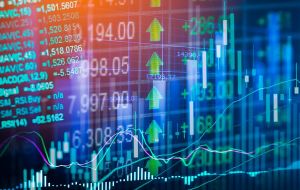MercoPress. South Atlantic News Agency
A good one for Macri: MSCI decides to reclassify Argentina as an emerging market
 For Argentina it is some rare positive news for its economy, as market-friendly Macri seeks to normalize the country’s international financial standing
For Argentina it is some rare positive news for its economy, as market-friendly Macri seeks to normalize the country’s international financial standing  Argentina was downgraded to frontier market status in 2009 after former populist President Cristina Fernandez imposed capital controls.
Argentina was downgraded to frontier market status in 2009 after former populist President Cristina Fernandez imposed capital controls.  MSCI’s benchmarks are widely used, with some US$14 trillion in investors’ assets tracked against them.
MSCI’s benchmarks are widely used, with some US$14 trillion in investors’ assets tracked against them.  The index provider’s blessing can launch billions of dollars from index-tracking funds into markets around the world, especially developing economies.
The index provider’s blessing can launch billions of dollars from index-tracking funds into markets around the world, especially developing economies. Index provider MSCI said on Wednesday it will reclassify Argentina as an emerging market and begin including Saudi Arabia in that classification, sharply broadening the investor base for both countries in a move that could be supportive of their equity markets. The decisions will be effective beginning in mid-2019.
For Saudi Arabia, there is high anticipation over the market listing of state-controlled energy company Aramco, which could be the largest publicly-traded company globally. International investors’ expectations were that “the current privatization effort in Saudi Arabia will continue to grow the investable opportunity set available” Sebastien Lieblich, MSCI managing director and global head of equity solutions, said in a statement.
That should contribute to an increased weight of Saudi Arabia in the Emerging Markets Index in the future, he added.
For Argentina, it is some rare positive news for its economy, as its market-friendly president seeks to normalize the country’s international financial standing. It was downgraded to frontier market status in 2009 after former populist President Cristina Fernandez imposed capital controls.
MSCI’s benchmarks are widely used, with some US$14 trillion in investors’ assets tracked against them. The index provider’s blessing can launch billions of dollars from index-tracking funds into markets around the world, especially developing economies.
“The addition of Argentina and Saudi Arabia will add diversification to MSCI emerging market indices that are increasingly weighted to South Asian and tech heavy markets such as China, South Korea and Taiwan,” said Todd Rosenbluth, director of fund research at New-York based CFRA.
The Saudi index .TASI has been among the best performing in the Gulf region, up 13.3% this year to date. Saudi Arabia could see US$ 30-45 billion of portfolio inflows in the next two years if it reaches the same level of foreign ownership in stock markets as the United Arab Emirates and Qatar, according to investment bank EFG Hermes.
The MSCI Saudi Arabia Index will have a weighting of approximately 2.6% in the emerging markets index with 32 securities, following a two-step inclusion process in May and August next year. The Saudi Arabia ETF was up 2.4% while the Argentina ETF rose 5.3% in after-hours trading in U.S. markets.
Saudi Arabia’s MSCI index .MISA00000PUS has risen nearly 20% this year, while Argentina’s .MIAR00000PUS is down nearly 40% from its 2018 high hit in January. The overall MSCI emerging Markets index .MSCIEF is down 5.6% year to date.
Only offshore listings of Argentine companies will be included, such as American Depositary Receipts. International institutional investors said higher liquidity in the domestic market is needed before considering a shift to onshore listings, MSCI said.
It said it would review its decision on Argentina if the country re-introduces capital controls or puts restrictions on its currency’s movement.




Top Comments
Disclaimer & comment rules-

-

Read all commentsRg is a lost cause.
Jun 21st, 2018 - 04:47 pm 0Tear it all down and start over.
They'd have better luck as a BOT.
“A good one for Macri.”
Jun 22nd, 2018 - 11:06 pm -2What a distasteful headline and an insult to Argentines.
It may indeed be a 'good one for Macri' only because the guy has significant funds in offshore accounts that make those assets larger each time the peso takes a hit.
The MSCI's opportunistic upgrading of Argentina comes at a time when the country is on its way to a deeper crisis than recently seen.
Such crisis will have been largely self-inflicted by a team of CEOs in charge of the country since December 2015.
Definancing the state by quashing export taxes to agri-food and mining products as well as eliminating several taxes to the wealthy was a start.
It continued with persistent inflation, which has impacted on workers wages and retirees' fixed income.
It went further by deregulating capital movements, allowing for foreign speculative operators to buy government bonds yielding high interest rates and then taking off whenever it suits them--as shown during the recent run. Capital flight under Macri has reached catastrophic proportions.
It also opened the country doors wide to an indiscriminate amount of imports, which has undermined the domestic productive sector and permitted significant volumes of currency flight.
Free availability of dollars at convenient prices has encouraged Argentines to undertake tourism travel abroad - nice, but this has added to the bleeding of the country's currency.
In any event, the MSCI does not owe any loyalty to Argentina but to foreign investors, which will continue the party while some crumbs remain available.
Commenting for this story is now closed.
If you have a Facebook account, become a fan and comment on our Facebook Page!